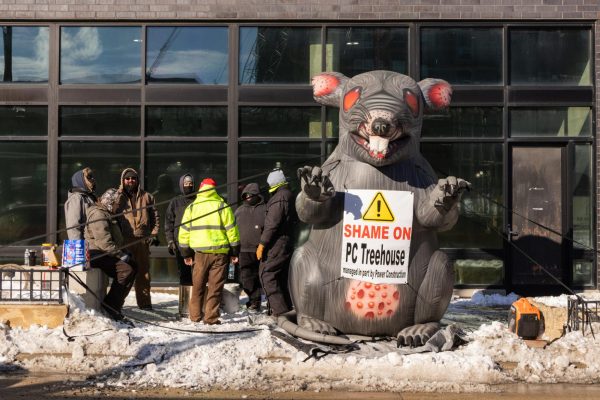UI looks to remove censure
Oct 7, 2015
Last updated on May 5, 2016 at 08:56 p.m.
The University is not fulfilling its “basic purpose,” according to the American Association of University Professors, AAUP.
On June 13, the AAUP censured the University for violating Steven Salaita’s rights to academic freedom. Robin Kaler, campus spokeswoman, confirmed that both Interim Chancellor Barbara Wilson and President Timothy Killeen are taking measures to ensure the censure’s removal. Here’s The Daily Illini’s breakdown and how it impacts the campus.
What is censure?
According to AAUP, a college or university is censured if the association finds the academic freedom environment to be unsatisfactory. In its 1940 “Statement of Principles”, the AAUP believes universities exist for the “common good” and are dependent on “free search for truth and its free expression.
Get The Daily Illini in your inbox!
How does censure affect the University?
In reality, only the administration is censured. Students and faculty aren’t; however, that doesn’t mean they aren’t affected.
Overtime, censure can hurt the University’s ability to recruit the same caliber of its current faculty, therefore harming students’ education.
The AAUP guidelines are widely accepted by universities, thus when the association notes a university as in conflict with its principals, professors and researchers may not want to work there.
From an expert: censure won’t be lifted soon
John Wilson, co-editor of the AAUP’s blog “Academe,” said the University is not on track to be removed. In order for censure to be lifted, the University must reconcile with Salaita and change its policies. The University changed the timeline of its hiring but has not amended with Salaita yet. He said the outcome of his lawsuit could play a major role in the decision.
Why was the University censured?
On Aug. 1, 2014 Salaita received an email from former chancellor Phyllis Wise, stating she wouldn’t recommend his appointment as a tenured professor in the American Indian Studies department to the Board of Trustees.
New hires must receive board approval after they’re offered a position. Because it’s rare for the board to reject new candidates, approval was given after a faculty member already began teaching.
Salaita’s tweets were criticized as anti-semitic, raising concerns about his position on campus. When Salaita’s offer was revoked, others raised concerns about academic freedom. On Sept. 11, 2014, the board voted not to hire him.
The association defined Salaita’s tweets as extramural speech, meaning because he was not speaking in a teaching capacity, the University can’t hold them against him.
What is the University doing about it?
Kaler said there are no specific steps to have the censure lifted. However, Wilson and Killeen are talking with people who are upset about the situation. Additionally, Kaler said Wilson is working to learn more about what needs to be done to lift the censure.
The local AAUP
Harry Hilton, AAUP local chapter president, said the University has made efforts to have the censure lifted.
“We had frank and helpful discussions and all indicated that they were anxious to take appropriate steps that will lead to censure removal,” he said.
But, Hilton said he requested to address the board at its September meeting but was declined because the matter is in court. When he requested to speak solely to the executive committee, Hilton said he never received a response.
“Such refusals to communicate with an accredited faculty organization is inimical to the shared governance principles and counterproductive to the censure removal process,” he said.
View a timeline retracing the events that precipitated the censure.
Timeline by Steffie Drucker





